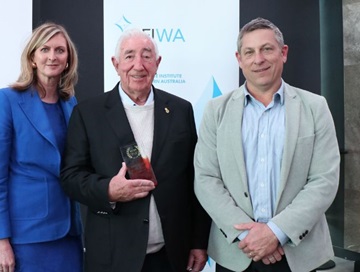There are a number of issues that can arise in communal living and working, including disputes between owners, building defects and rules changes, and at some point you may need assistance dealing with these issues.
This is where a strata advocate comes in. They can act on your behalf and help in the following ways:
- Navigate your rights and responsibilities. They can provide understanding of legislation, by-laws and regulations.
- Strata fees and expenses. They can help you understand the financial side of things, break down the budget and explain costs. This can help you be an active participant in any decision-making process regarding the complex and your property.
- Champion your cause. If you’re unsure how to voice your concerns, an advocate can bridge the gap between owners, the council of owners and the strata manager. They can be the voice of reason or mediator.
It’s important to appoint the right person to act on your behalf. REIWA’s Strata Network Committee have provided the following advice.
Consider the following when choosing an advocate:
- Experience: Do they have the right skills and experience for your situation? An advocate should know the legal ropes from proxy appointments to expiration dates but if your matter is complex, it may be prudent to engage a lawyer, accountant or other professional appropriate for your situation.
- Communication skills: Can they explain complex strata matters effectively, communicate clearly and respectfully and act fairly to achieve the end goal?
- Ethical compass: Look for someone who won’t play ‘proxy games’ or hoard power, but will act fairly to achieve the right outcomes.
- Authority to Act: Do they have an Authority to Act? A valid Authority to Act is important to ensure that other strata parties are legally able to engage with your advocate. It will also ensure the terms of their engagement, communication and fees are clearly set out.
Working with the wrong advocacy service can cause issues
The wrong advocate may lead you down the wrong trail, misinterpreting by-laws, missing deadlines or confusing ‘common property’ with ‘common sense’, which can cause disputes or worse. A competent advocate ensures you won’t accidentally declare war on your neighbouring lot or service provider/s. If your advocate doesn’t have a clear understanding of strata legislation you may end up in a more precarious position than when you started.
If an advocate is a poor communicator – they stay silent when they should speak up, are vague when clarity is crucial or cryptic when explaining your rights – they won’t be able to bridge the gap between you and other parties. Effective communication should be an advocate’s superpower: translating jargon, mediating disputes and ensuring everyone is on the same page (or at least the same chapter).
The wrong advocate can actually create more conflict, escalating minor issues and creating disharmony in the community and with your neighbours, and cause more issues than they resolve.
Choosing the right advocate is important: You want someone who won’t step on your toes or lead you off on a tangent. So, before you commit, do your due diligence. Investigate their track record, interview them and ask for references.
Before you go down the advocacy route
When it comes to strata dispute resolution, ideally before you proceed with appointing advocacy or mediation services, try communication with the Council of Owners and Strata Manager to gather as much information as possible.
Landgate also offers a strata information service and if your Strata Manager is a REIWA Member you can contact the REIWA Information Service for guidance on 9380 8200, Monday to Friday, during business hours.










